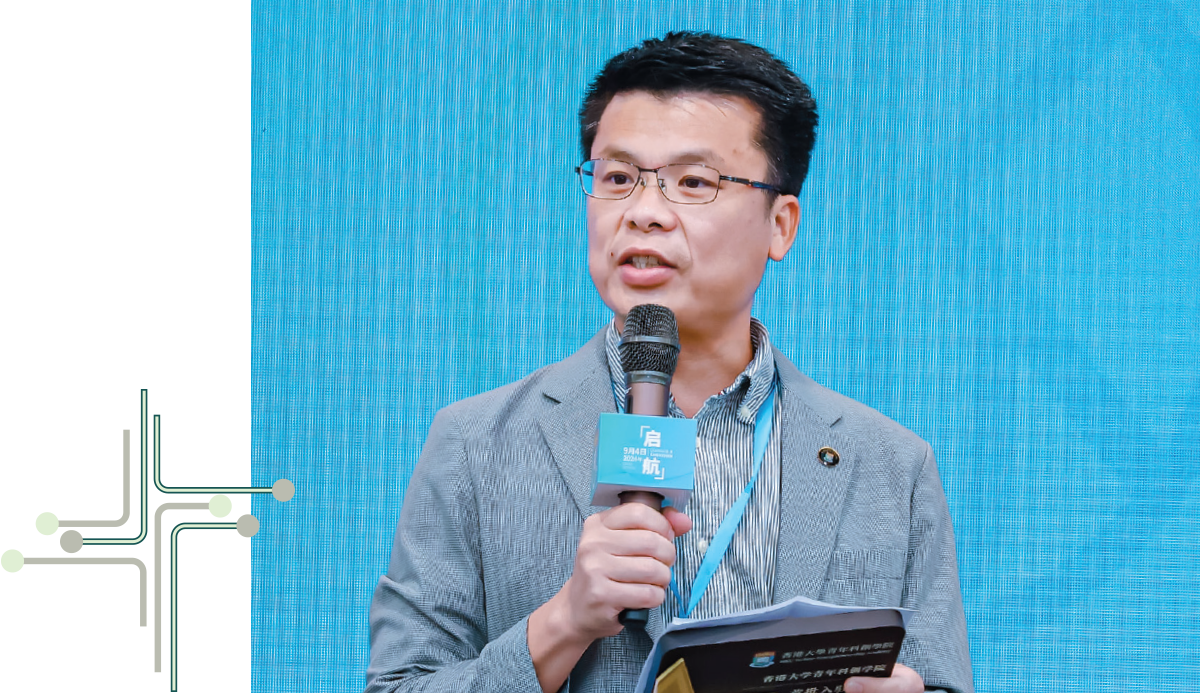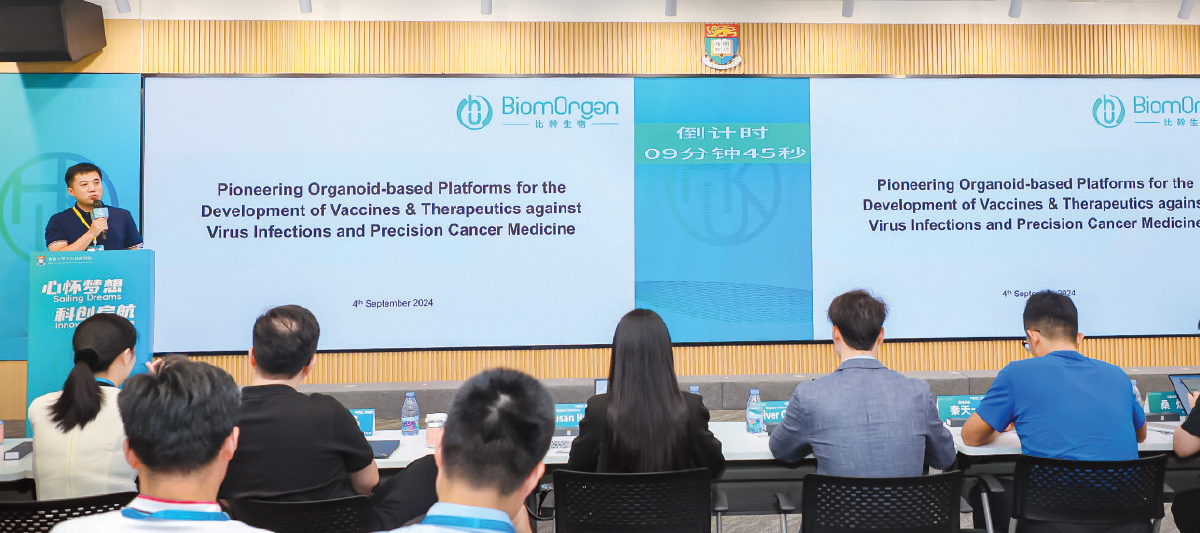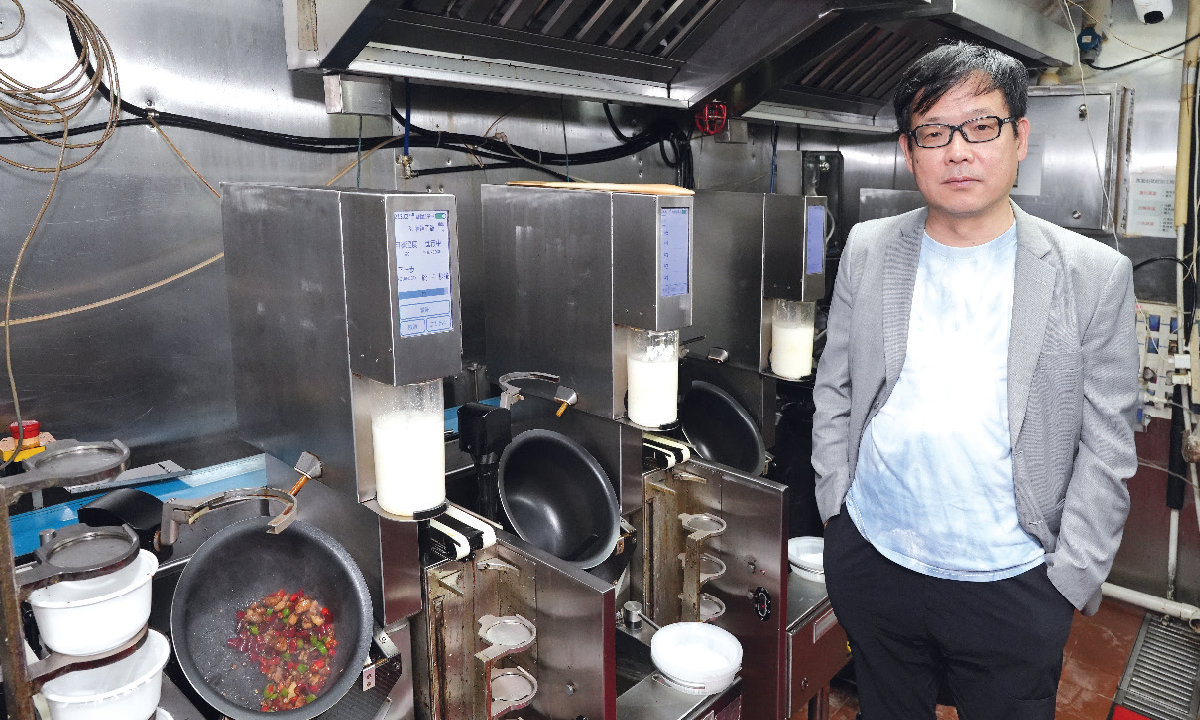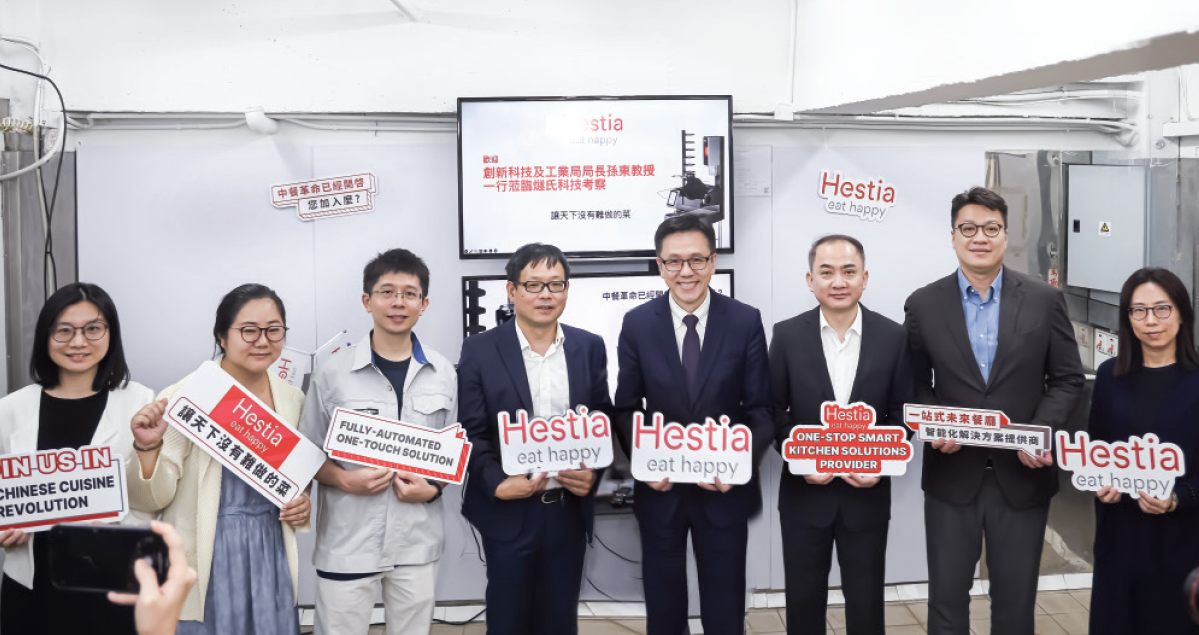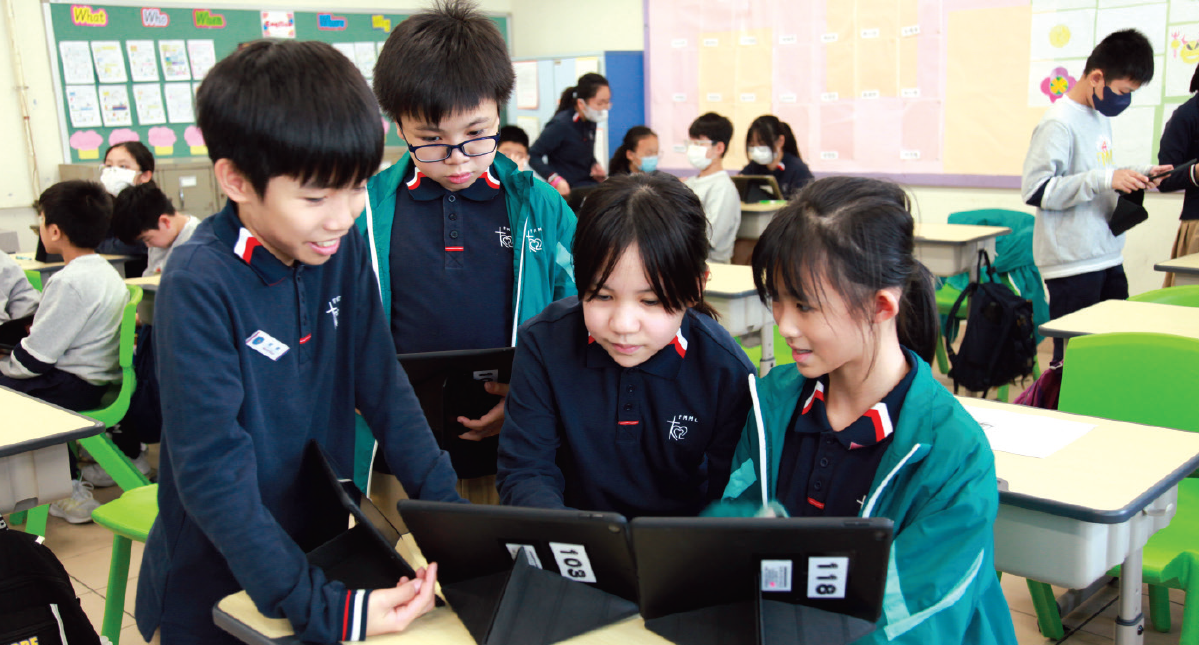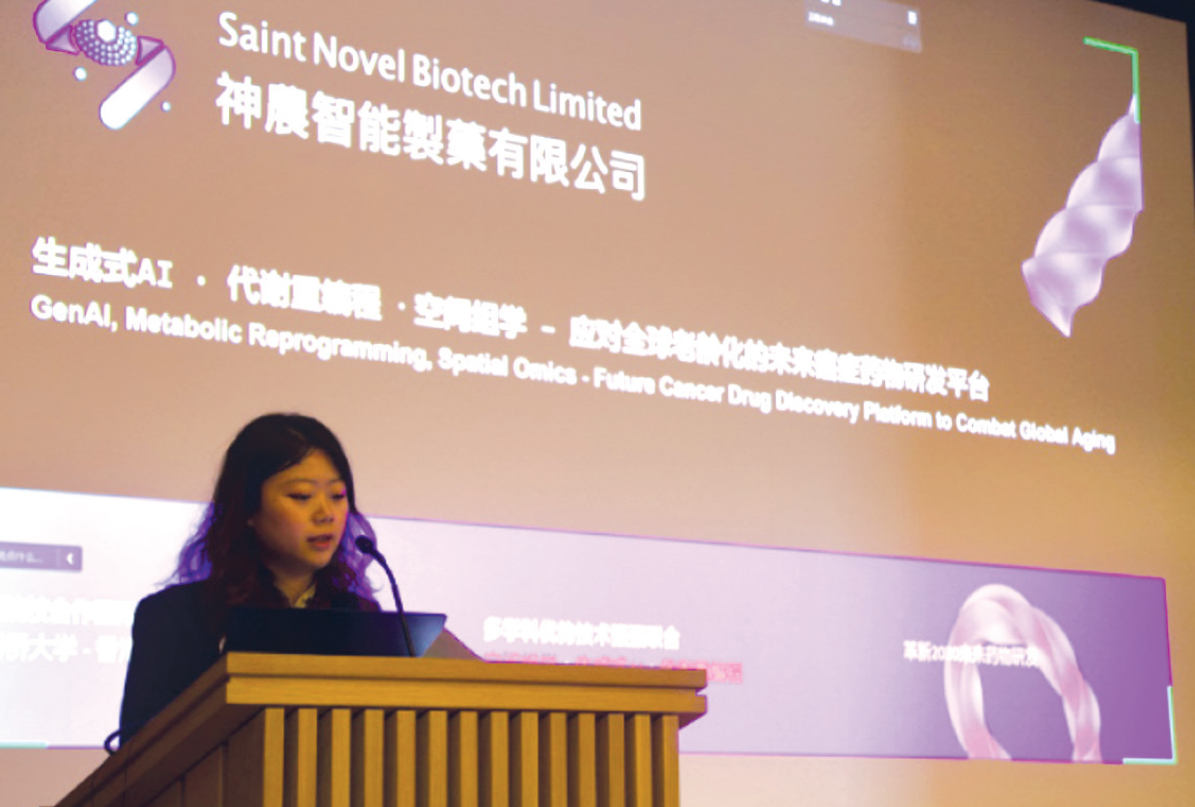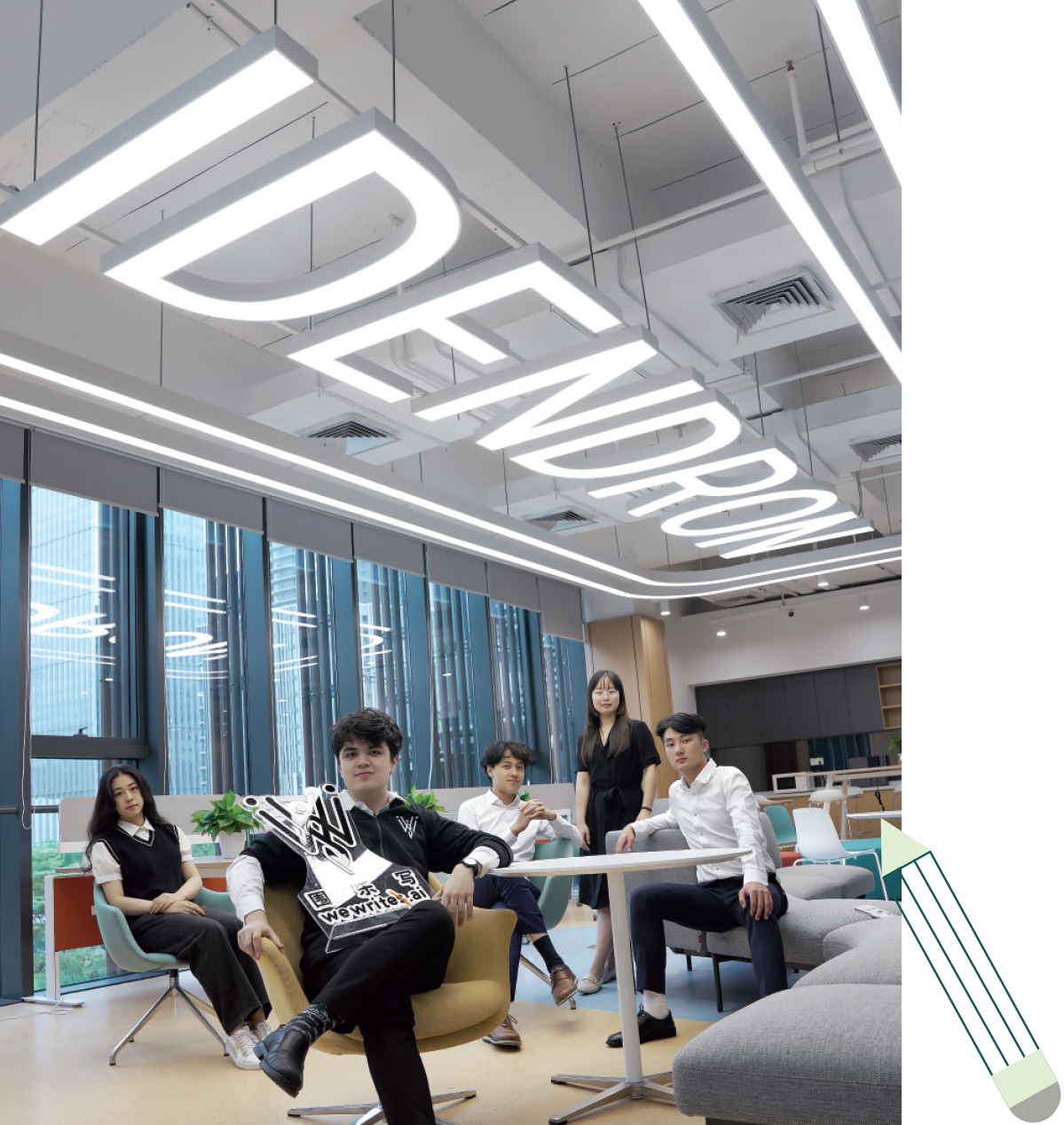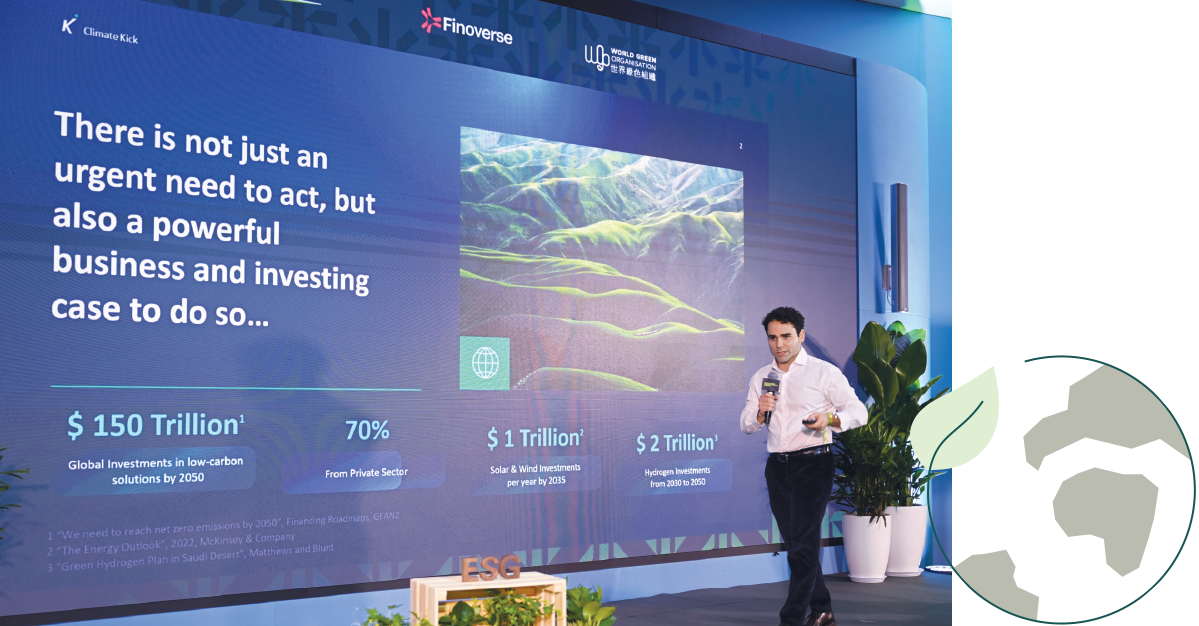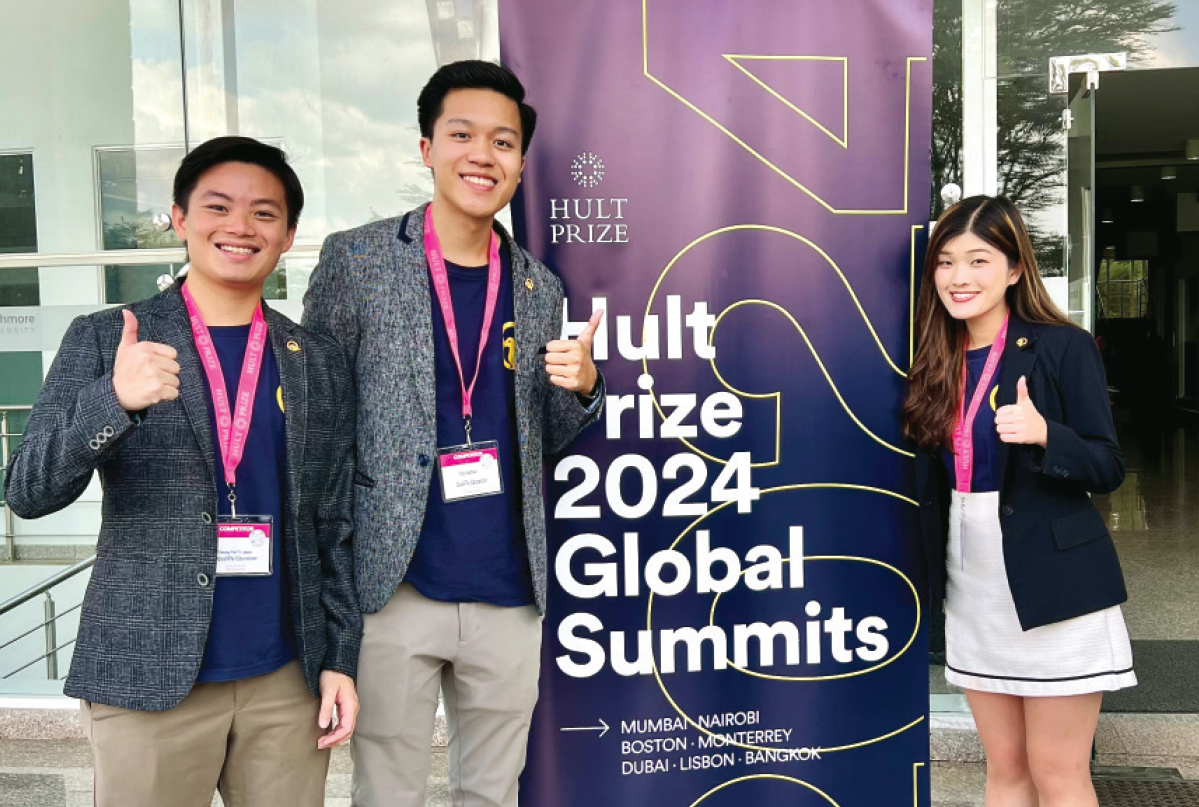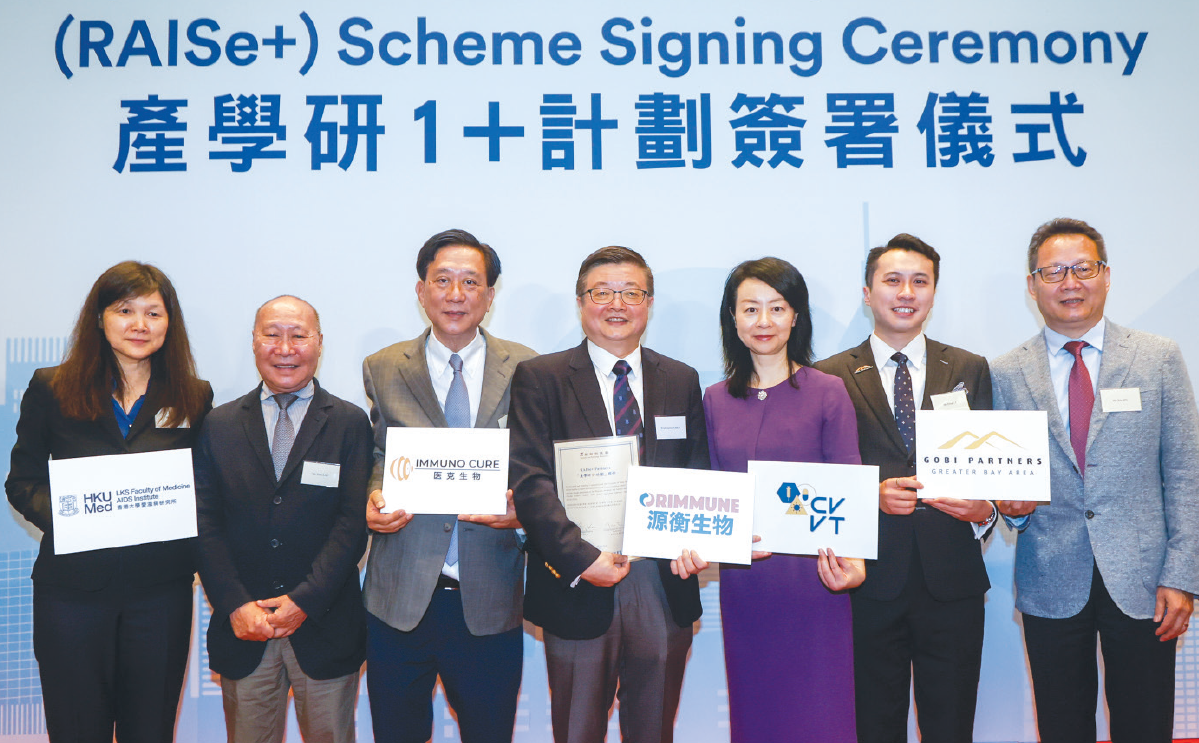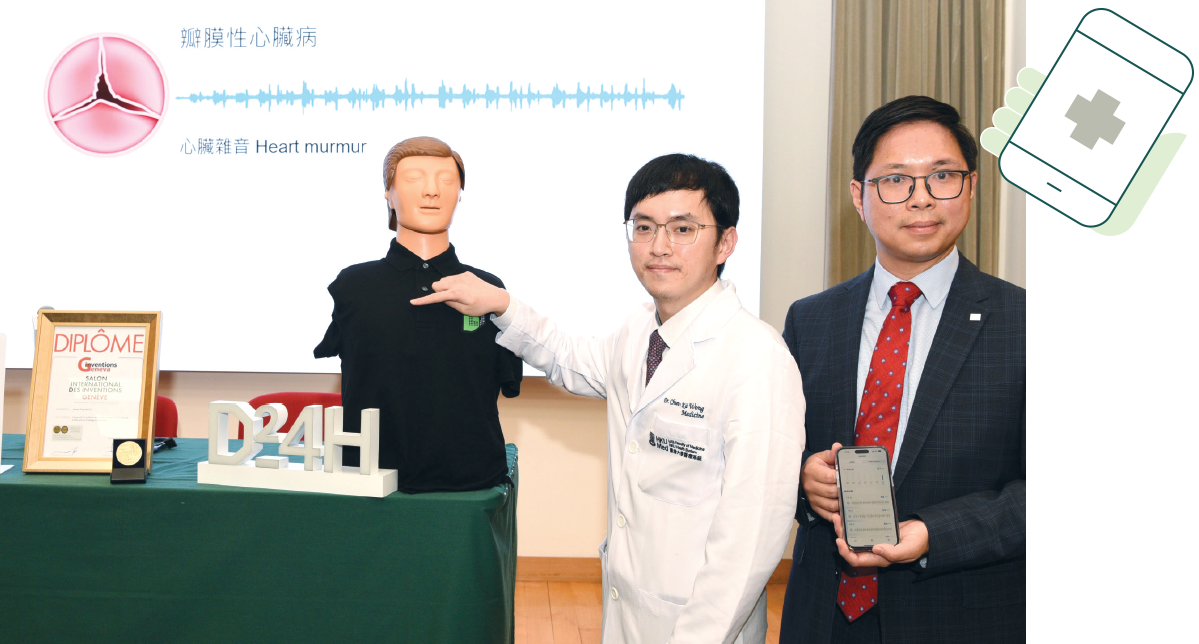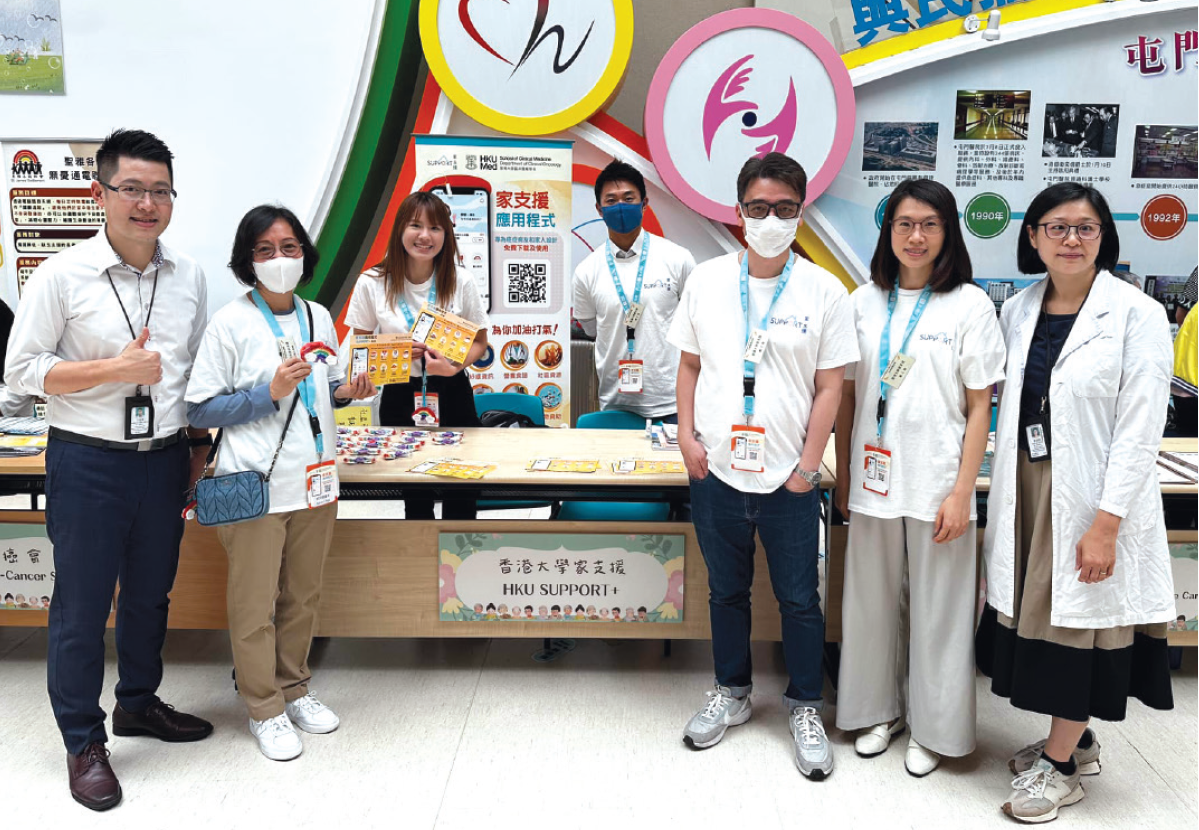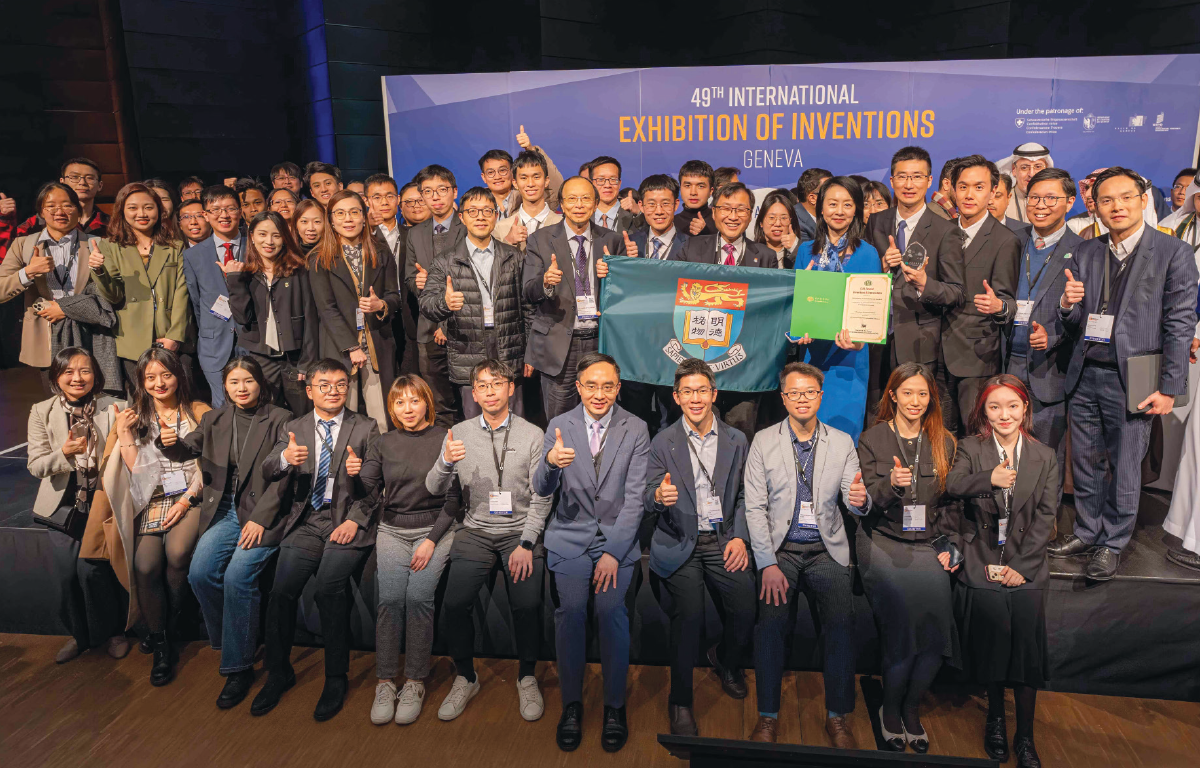
HKU’s innovative research novelties won 42 awards at the 49th International Exhibition of Inventions of Geneva.
Technology transfer and knowledge exchange are how we apply our research and know-how to help society advance and meet challenges. The University has been expanding efforts to maximise the impact of our research and support scholars and students to take their initiatives into the wider world.
The standout development of the year was the launch of the HKU Techno-Entrepreneurship Academy (TEA), a collaboration with Shenzhen Qianhai to promote innovation, entrepreneurship and technological advancement in the Greater Bay Area. Training programmes, themed accelerators and industry collaborations are offered, as well as space for HKU’s training and incubation platform, iDendron@Qianhai. During the TEA’s official opening ceremony in September 2024, we announced the first batch of 11 HKU-linked start-ups admitted to the TEA and we inaugurated two major initiatives for HKU start-ups: the Entrepreneurship Engine Fund, which now has its first batch of investment partners and aims to amass more than HK$400 million in investment funds, and the HKU Super Angel Network, which is mobilising our alumni to back early-stage start-ups.
The TEA is part of our determination to foster an entrepreneurial culture at HKU, which we are promoting by facilitating students and staff to launch their own start-ups. Students trained through HKU-based iDendron programmes launched 36 start-ups in 2023–24. The DeepTech100 incubation programme, announced two years ago with the Hong Kong Science and Technology Parks Corporation, has so far launched 81 research-based start-ups.
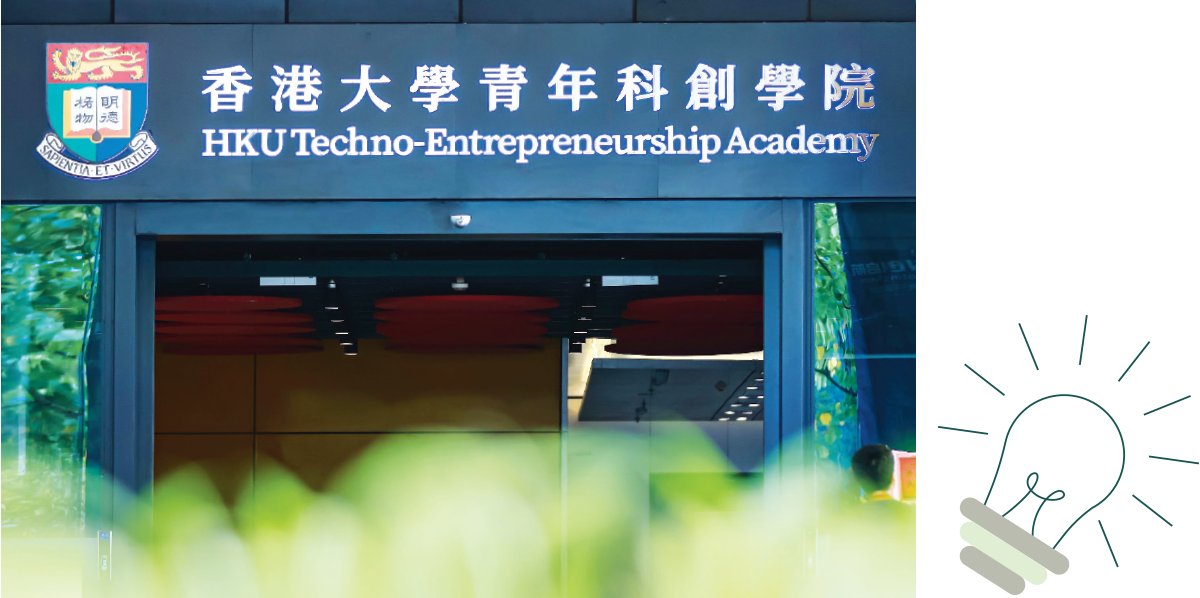
The HKU Techno-Entrepreneurship Academy in Shenzhen Qianhai is designed to be a hub for aspiring entrepreneurs and technologists, providing them with the resources, mentorship, and support needed to transform innovative ideas into successful ventures.
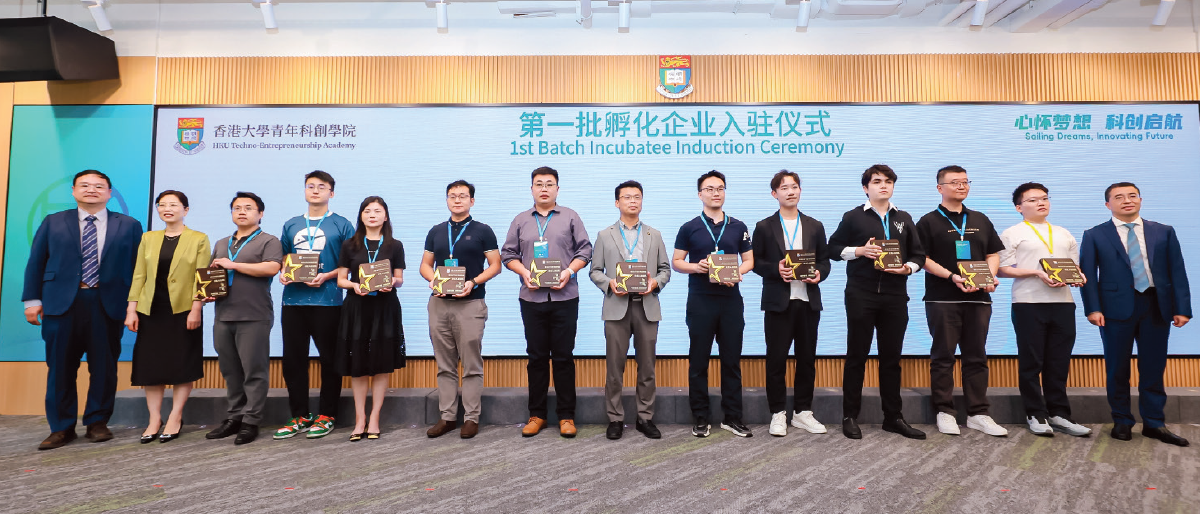
The first cohort of 11 start-ups stationed at the HKU Techno-Entrepreneurship Academy.
81

DEEPTECH100 START-UPS
supported since 2022,
with up to HK$1.39 million
each
in funding
Individual faculties in the University also have programmes to encourage entrepreneurship, such as the Faculty of Engineering’s Tam Wing Fan Innovation Wing, which held about 200 activities and events in 2023–24 for 10,000 participants.
These efforts have brought measurable results. For example, HKU researchers had their strongest performance ever at the 49th International Exhibition of Inventions of Geneva, winning 42 awards for 40 inventions. They also continued translating their research – there are now 310 active start-ups affiliated with HKU, and we had 121 newly granted patents in 2023–24.
The University is also engaging Mainland China in tech transfer with the first nationwide HKU Innovation & Entrepreneurship Challenge held in December 2023 and Memorandums of Understanding signed with such organisations as China Mobile (Hong Kong) Innovation Research Institute, Hongdu Aviation, and the Centre of Science and Technology Industrial Development of the Ministry of Housing and Urban-Rural Development.
Entrepreneurship is not the only way of making impact, of course. The University also funds impact projects mapped to the United Nations’ Sustainable Development Goals and in 2023–24, we awarded 14 such projects up to HK$500,000 each under the Strategic Impact Scheme. We are also encouraging everyone to communicate their work with the message: bring your research into the world and start to make an impact.
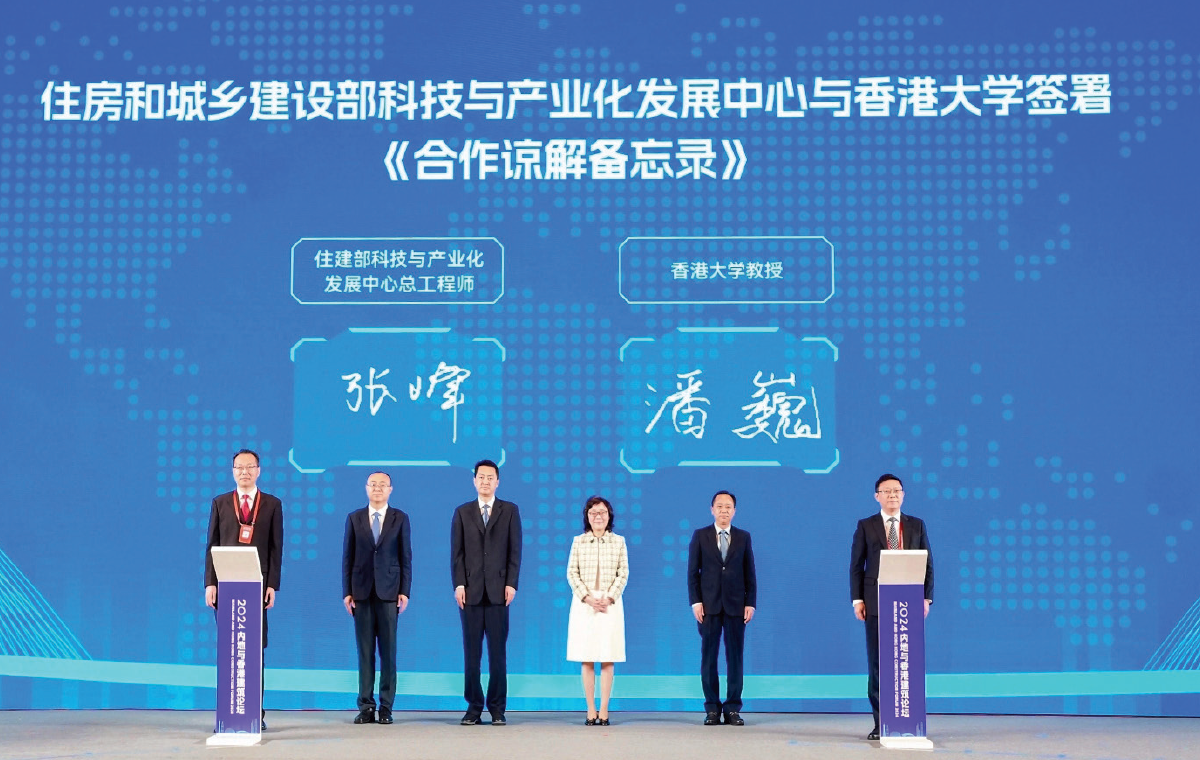
HKU and the Centre of Science and Technology Industrial Development of the Ministry of Housing and Urban-Rural Development signed a Memorandum of Understanding during the Mainland and Hong Kong Construction Forum 2024 in March.





